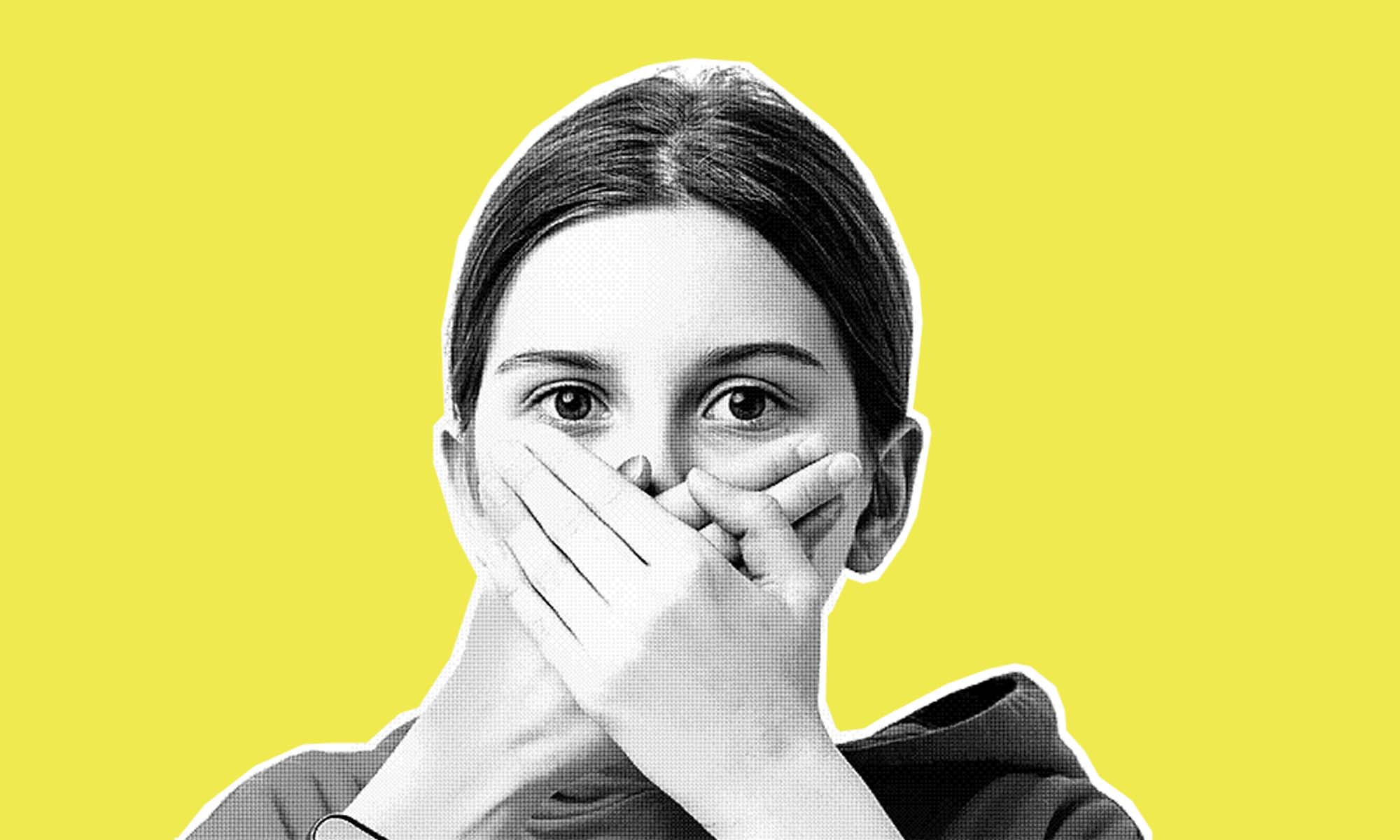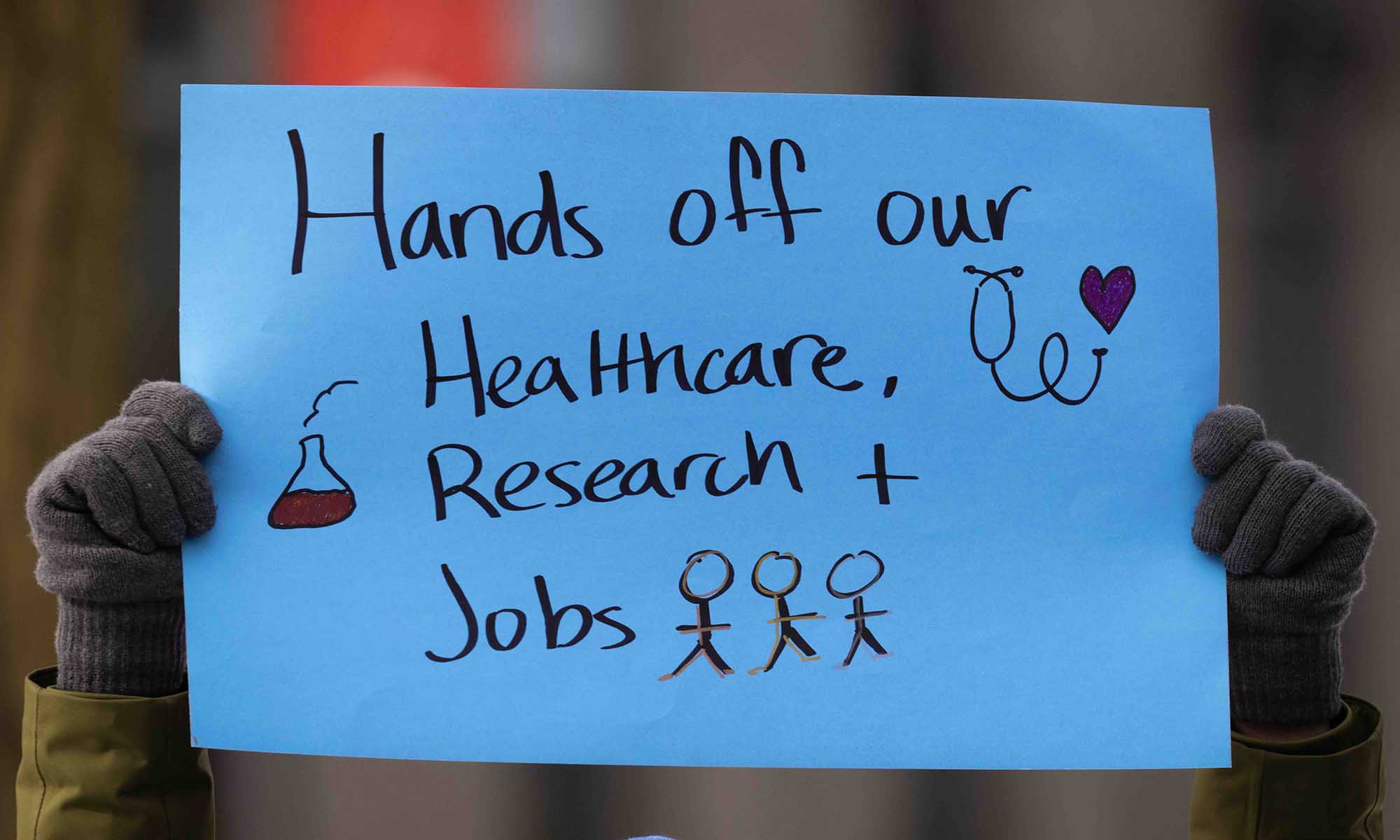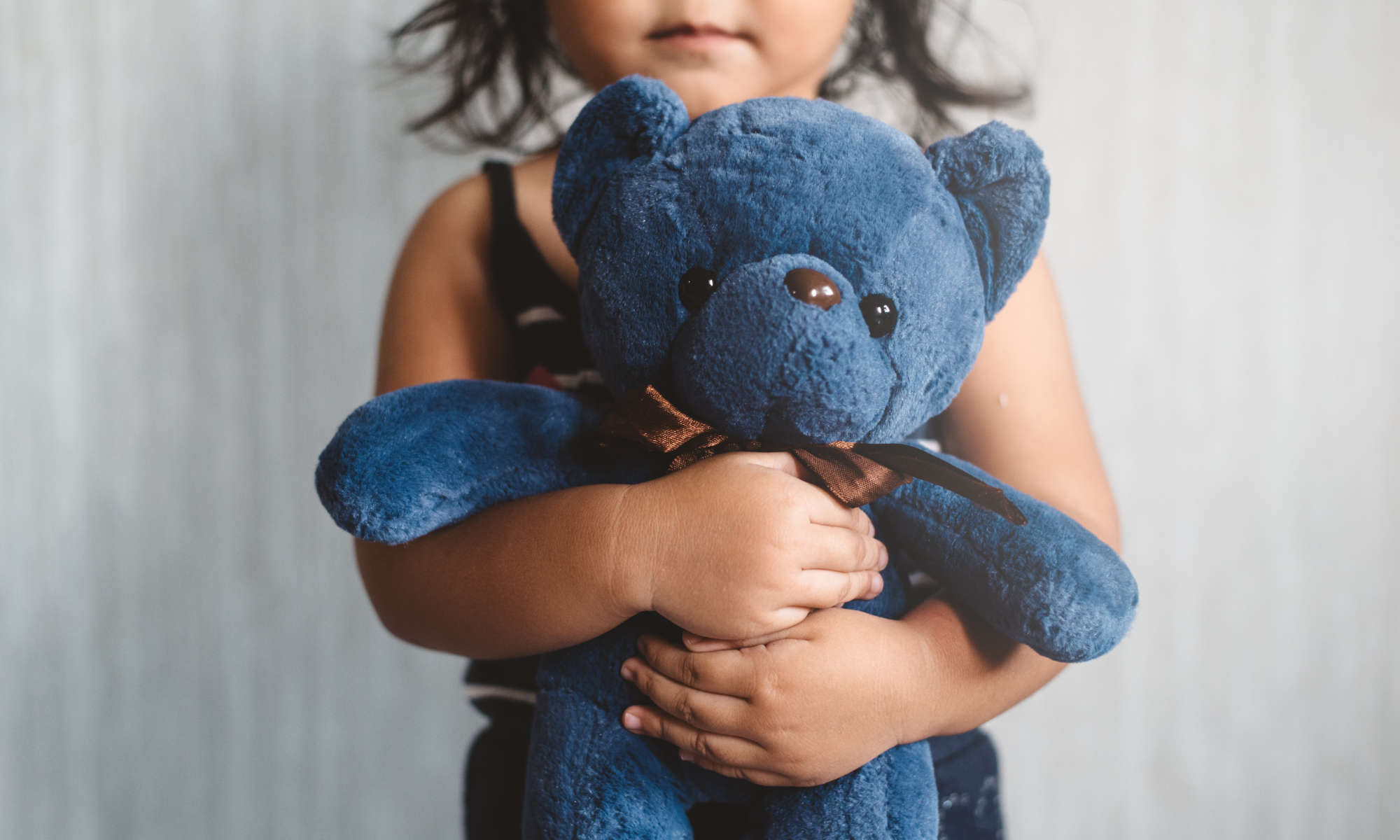A study by a University of Rochester psychologist finds patterns in the timing of lies and the way secrets are disclosed.
It’s a truth universally acknowledged that most teenagers, at one time or another, will hide information from their parents. Some will lie outright.
Yet, when they do lie—do they plan to fib ahead of time? What about when they share information–do they do so voluntarily? And do they employ the same (mis)information strategies every time when they do something, or plan on doing something that they know their parents won’t be happy about?
Of course, lying is not exclusive to adolescents. “Most people lie. Often more than once a day,” clarifies Judith Smetana, a professor of psychology at the University of Rochester.
But while we all regularly engage in social lies—“cute dress”; “I like the new haircut”; “sorry, we have a prior engagement”—teens also often lie about their routine activities, such as where they were, with whom, and what they were doing.
Sometimes their fibs are trivial.
“I forgot to feed the fish. I didn’t tell my parents, but the fish didn’t die, so it was okay,” Smetana recalls one teen’s response.
But sometimes the concealing isn’t so innocent.
Smetana has made it her life’s work to understand how teenagers tick. For about four decades now, the developmental expert has focused on adolescent-parent relationships, parenting beliefs, and the moral and social reasoning of children, teens, and young adults.
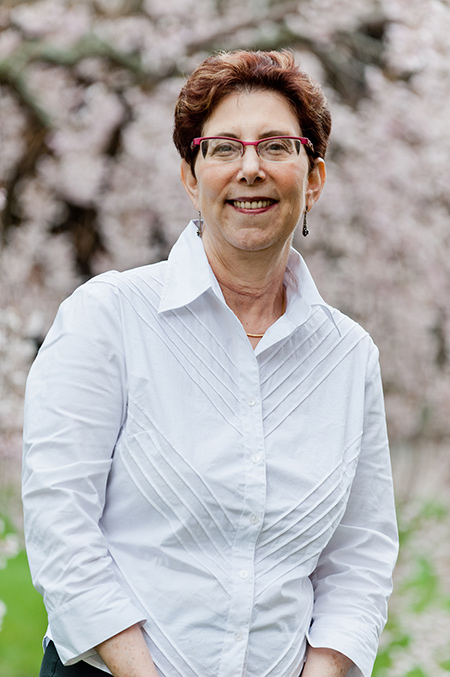
Timing is (nearly) everything
In a recent study, published in the Journal of Adolescence, Smetana and two University of Rochester psychology graduate students, Sduduzo Mncwabe ’23 (MA) and Yuejiao Li, explored the narratives of 131 teenagers and college students who had been interviewed about a time when they did something that their parents disagreed with or had expressly forbidden. Study participants were asked about each of these three scenarios: a time when they subsequently disclosed (part or all of it), concealed, or lied about an activity that their parents disapproved of.
Narratives hold special value, according to Smetana. While disclosure and concealing has spawned a large body of research over the last two decades, most of it relies on questionnaires and surveys.
“Narratives provide rich information about how individuals make sense of their experiences— including how elaborate their narratives are, both factually and psychologically,” she says. “They’re really good for looking at how you reconstruct stories and what you remember about them.”
The present study is the third in a series, based on narratives that Smetana originally collected in 2014 and 2015. The first study (2019) looked at lessons teens learned about themselves and their parents, while the second (2021) examined teenagers’ emotions when reflecting on the three situations they had narrated.
For the most recent study, the team coded the narrated interviews for voluntariness, timing, consistency, and lessons learned. Part of the research addressed the frequent assumption that disclosure is voluntary, i.e. that teens who tell part or the whole truth do so on their own volition. “But that’s not always the case, which is what we suspected and, indeed, found,” says Smetana.
As most parents know—and which has been shown in prior research—as children become teenagers, their willingness to share information and keep parents in the loop declines, while secrecy increases.
“Partly, that’s about autonomy development, and teens doing what they want to do, even if it involves risky behavior,” says Smetana.
Key findings
Teenagers disclose information to their parents primarily voluntarily or strategically—either as a means to an end, such as telling the truth about a party to which they may need a ride, or preemptively because they suspect their parents will find out anyway.
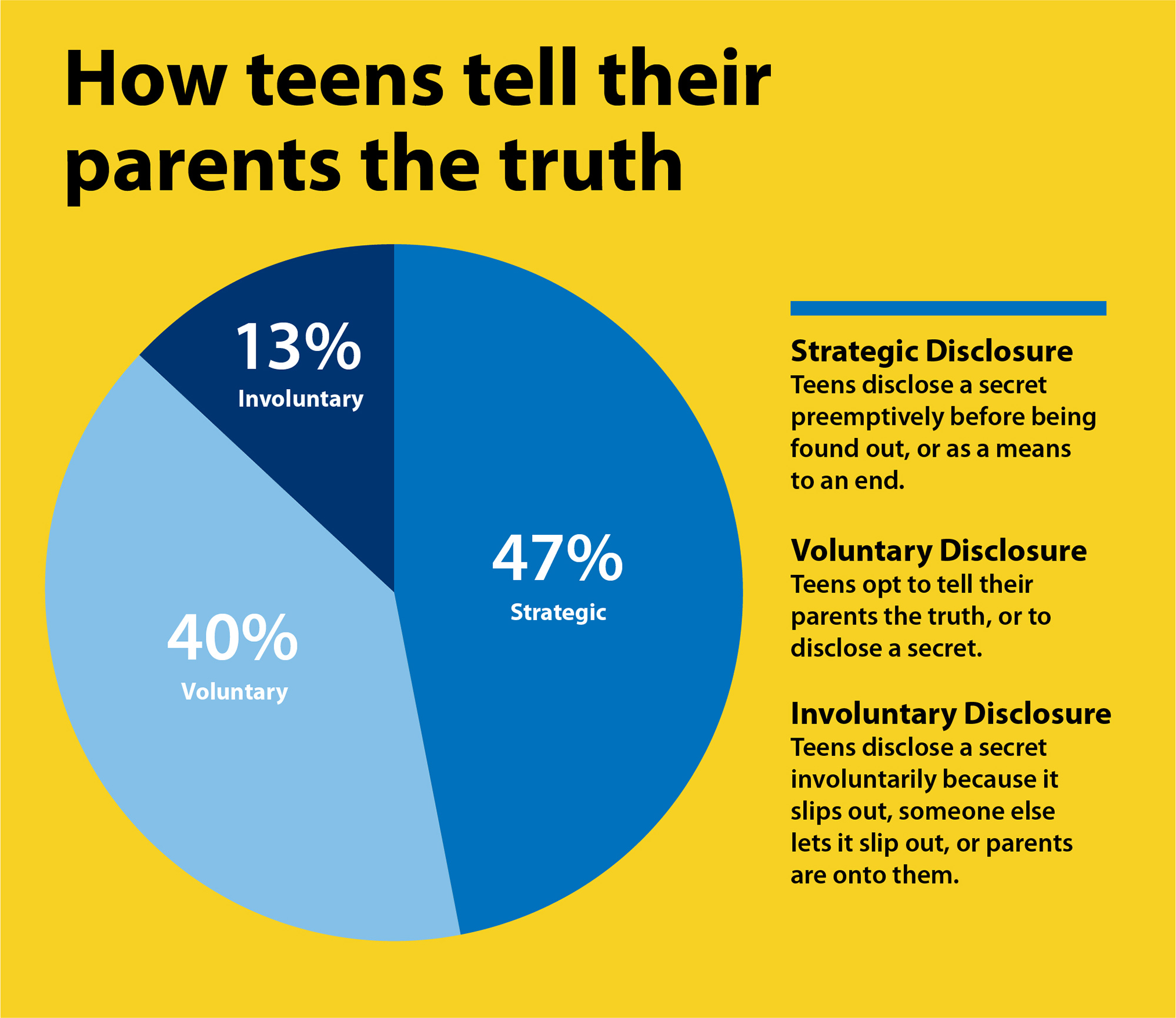
“It’s significant,” that only 40 percent of study participants disclosed the salient information of their own volition—“far less” than what had been commonly assumed, says Smetana.
Involuntary truth telling or disclosing, the team found, is much less frequent, and could involve a friend’s spilling the beans accidentally, a teen’s getting a tattoo that is eventually seen by parents, or by getting pressured by parents to tell.
Timing plays a crucial role: adolescents were more likely to lie (53 percent) before the event or action that their parents would not condone. However, telling the truth or disclosing the information occurred more often after they had already engaged in the parentally disapproved activity (35 percent disclosed the dodgy activity shortly afterwards, 8 percent lied for an extended time before coming clean, and 23 percent told the truth at some unspecified time).
Unsurprisingly (to any parent of teenagers), the teens in the study proved nimble in their approaches: they typically reported additional strategies besides the ones the researchers were specifically asking about, using multiple strategies around the same event.
“Disclosure may not be the first thing they do. Maybe they tried to get away with it without telling their parents. Or maybe they concealed first, and then they disclosed. It’s really shades of gray—usually not black and white,” says Smetana.
Disclosing (or telling the truth) after the event was associated with lessons learned, and voluntary disclosure with psychological growth. Meanwhile, psychological control—which is intrusive, manipulative, or disrespectful parenting that undermines the child—was associated with negative self-lessons.
While a whole host of studies have looked at teenage disclosure and secrecy—the timing of it has not been previously studied. Yet, timing, Smetana say, is crucial and has implications for how teens interpret these experiences, including life lessons learned.
Telling the truth voluntarily is linked to personal growth
Study participants were asked what, if anything, they had learned from their recounted experiences of disclosure and lying. Not all proved good ones, says Smetana. “The lesson learned about lying could be, ‘I’m a good liar!’ And we did get some of that.”
In the News
The New York Times quoted Smetana in 2017 when asking, “Is Snooping on Teenagers ever O.K.?”
Overall, the researchers found that, regardless of age, telling the truth (or part of it) voluntarily was associated with teens’ reporting positive change, such as greater psychological growth in understanding themselves, their purpose, self-efficacy, or connections to others and parents. When it came to experiences of truth telling, the team noticed that the disclosure narratives contained more motives, intentions, and desires—compared to the teens’ narratives about concealment or lying.
“They had a better psychological understanding of themselves and made more psychological meaning out of disclosure, than out of concealment or lying,” says Smetana.
Conversely, teenagers drew more negative conclusions when retelling experiences of lying, such as more negative views and less clarity about themselves, more negative emotions, or poorer self‐image. Additionally, disclosing after—rather than before—the narrated event was associated with greater likelihood of lessons learned about the self.
Lying often goes hand in hand with a host of other problems. Over time, lying regularly to parents is associated with poorer adolescent–parent relationships, and teenage problem behavior down the road, Smetana discovered in a separate study in 2015. Especially in the case of lying, the likelihood of a teen’s sliding into depression increases over time.
Previous research, the team notes, has shown that boys tend to lie to parents more than girls, perhaps because they are more likely to engage in deviant activities. Yet, pressured by parents to tell the truth lead over time to increases in stress for boys, and anxiety and depression for girls.
Disclosure and lying are “complex and nuanced” actions, the team writes, varying in timing, consistency, and voluntariness. These features contribute to how adolescents construe, understand, or make sense of life events, relationships, others, and themselves—which psychologists refer to as meaning-making.
Advice for parents
According to Smetana, researchers used to think that parents who monitor their children—who have firm rules and ask their kids what they are up to—would be able to keep their offspring out of trouble. More recent research , however, indicates that parental monitoring doesn’t improve parents’ knowledge of their children’s lives. Instead, it all comes down to the teens’ willingness to share information.
“Do whatever you can to be responsive and keep the lines of communication open so that your kids will tell you voluntarily, not under pressure,” says Smetana.
The key to sharing pertinent information are warm, trusting parent-child relationships that develop prior to adolescence and continue throughout life. There are some things teens choose not to disclose because they see the issues as personal and private—not the parent’s business, notes Smetana. To some extent that’s ok, she says, because it helps foster teen autonomy. But parents and teenagers often differ on what is private and should be up to the teen to decide—versus what parents need to know to keep their teens safe. Adolescents may not tell parents about risky behavior, for example, because they are afraid they’ll get in trouble, or that their parents will think less of them.
“This is where trust and good communication are especially important, because it might mitigate parents’ negative responses,” says Smetana.
In earlier research, Smetana had asked parents how much they thought they knew about their teenagers’ activities and found that parents vastly overestimated their knowledge.
“Even in families where they have good relationships, parents don’t know as much as they think they do.”
This overestimation, Smetana acknowledges, extends to the parenting of her own, now grown, sons.
Only after they had left home, she says, did she learn about some of the things they did as teens. “Nothing too drastic—but what? Really?! I study this stuff and I didn’t know everything.”
Read more
 Does guilt make for good parenting?
Does guilt make for good parenting?
There isn’t much Judith Smetana doesn’t know about parenting teenagers. Her latest study in a nearly 40-year career as a professor of psychology, looks at the effect of using guilt as a parenting tool.
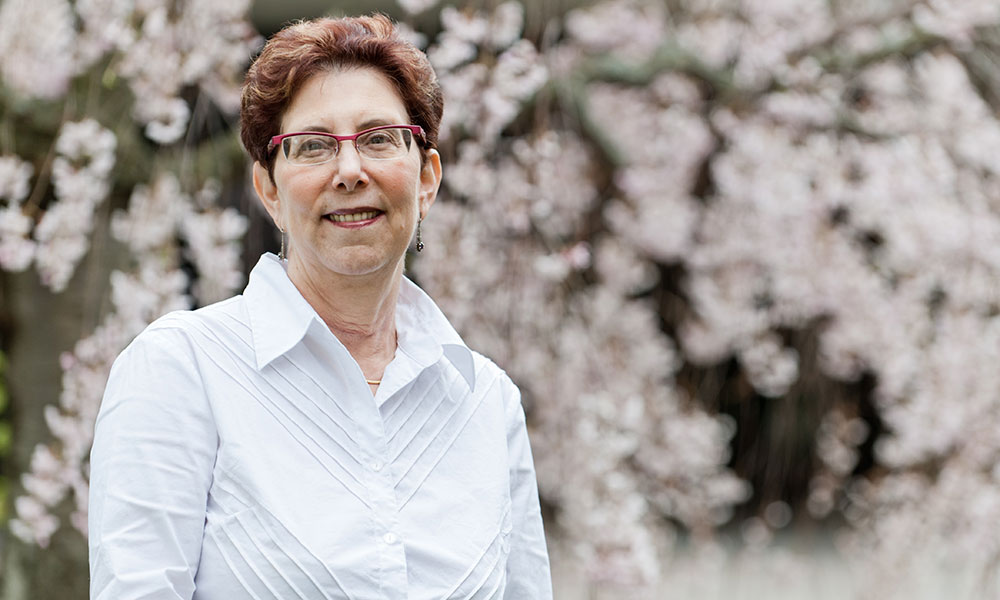 Adolescence expert wins psychology career award
Adolescence expert wins psychology career award
An expert in teen–parent relationships, psychology professor Judith Smetana is being recognized by her peers with the 2018 John P. Hill Memorial Award from the Society for Research on Adolescence.
 Helping teens channel stress, grow in resilience
Helping teens channel stress, grow in resilience
Psychologists have developed a tool to help teens turn everyday stressors that could lead to anxiety and depression into a positive force instead.


